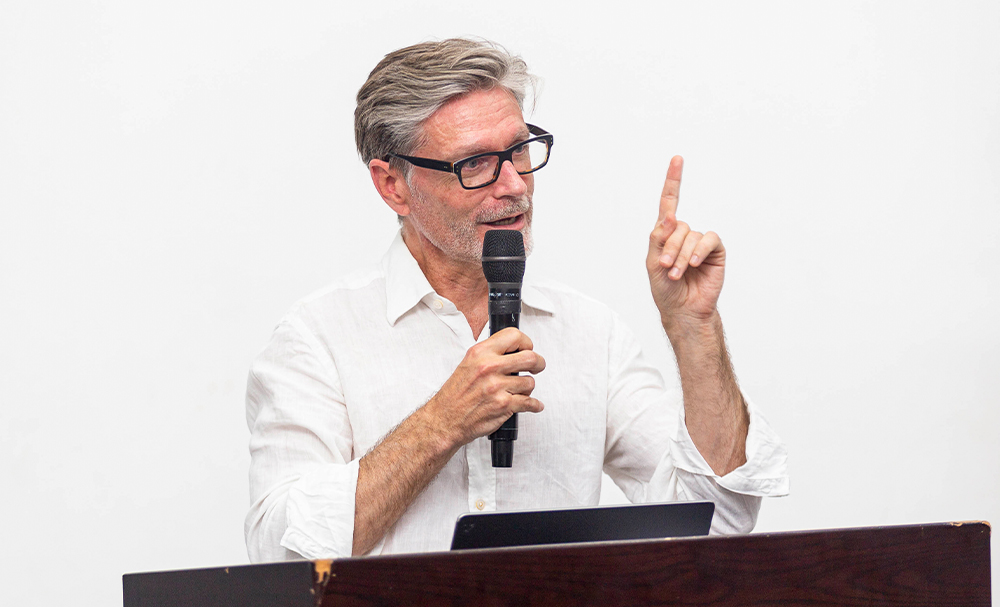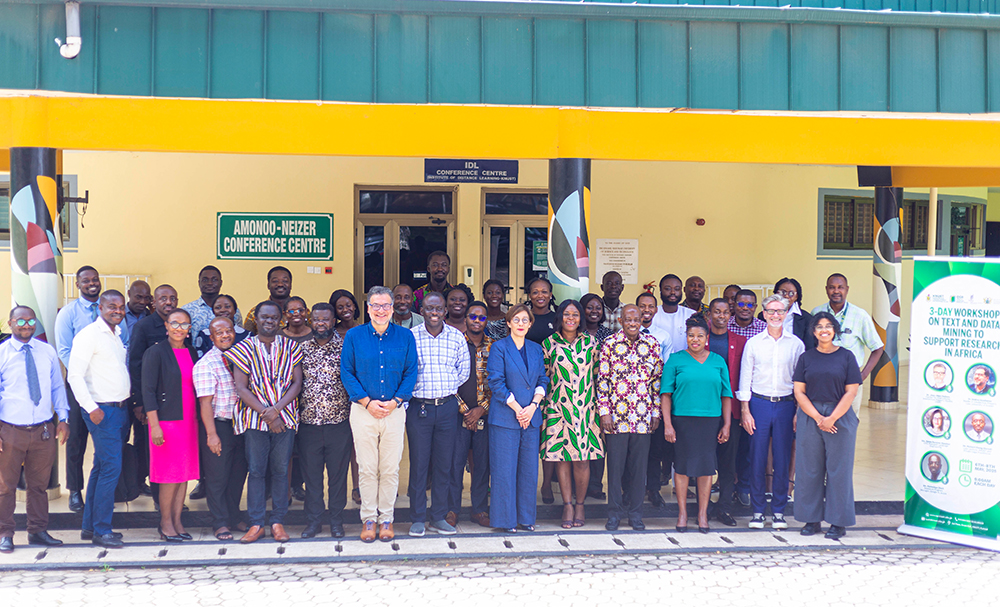The Office of Grants and Research (OGR) at the Kwame Nkrumah University of Science and Technology (KNUST), Kumasi, has hosted a three-day workshop on Text and Data Mining (TDM) aimed at enhancing research capabilities across Africa.
The workshop, held in collaboration with the World Intellectual Property Organization (WIPO) and the Registrar General’s Department, brought together experts, researchers, and staff from various institutions to explore the practical applications of TDM in academic research.
Speaking on behalf of the Director of the Office of Grants and Research, the Deputy Librarian, Mr. Richard Bruce Lamptey, emphasised the importance of embracing digital technologies in today’s rapidly evolving research landscape.
“We are in an era defined by rapid digital innovation, where technologies such as artificial intelligence, machine learning, and big data are reshaping the economy and the way we produce and share knowledge. These tools are not just driving the Fourth Industrial Revolution. They are setting the pace for global innovation and competitiveness,” he said.
He added that for Africa to remain relevant and competitive, the continent must not only utilise these technologies but also actively contribute to their development. According to him, the workshop is a proactive step towards ensuring African scholarship is not left behind but instead helps shape the future of global research.
Representing the Registrar General, Miss Grace Issahaque, Mr. Samuel Anum highlighted the transformative potential of TDM in advancing research and development across Africa. He noted that researchers are generating vast volumes of scientific literature and valuable data with immense potential to shape the future.
“When we harness TDM effectively, we empower our scientists and engineers to discover novel insights in health, agriculture, engineering, and other fields. We strengthen the evidence base for policy and development, protect and commercialise our intellectual creations strategically, and ultimately contribute to sustainable growth across our communities,” he said.

Professor Jean-Marc Delton of the University of Strasbourg highlighted the complex legal and ethical considerations surrounding the use of TDM in research. He explained that while TDM holds great potential for advancing open science and innovation, it also raises concerns about infringing on the rights of content creators.
He stressed the need to find a middle ground that supports innovation without compromising intellectual property rights. Professor Delton noted that the legal system must continually seek equilibrium among various stakeholders, including researchers, innovators, rights holders, and policymakers.
He outlined how the European Union has attempted to address this challenge by developing frameworks that distinguish between TDM for academic research and for commercial use, such as in start-ups and spin-offs.
Mr. Abdoulaye Diack, Research Program Manager at the Google AI Research Centre in Accra, delivered a presentation on the “Challenges Specific to the African Context.” He highlighted several AI and machine learning projects developed by the Google Accra team, showcasing their impact and success. Among these was a project on creating building polygon datasets for maps, which revealed that between 2016 and 2023, Kumasi was the most rapidly urbanising city in the world.
Other initiatives included disaster response mapping, agricultural land mapping, and weather prediction using satellite data. All of these are available online with open-source licences. Mr. Diack emphasised that many of these innovations were developed by Ghanaian researchers and have evolved into applications now used in everyday life.
There were also presentations from other experts. Miss Gema Ramirez-Sanchez shared the perspective of an AI company, shedding light on how industry players view and utilise TDM. Dr. Andres Guadamiz provided an introduction to the global legal implications of TDM, while Mr. Richard Obeng Mensah explored the relevant legal frameworks specific to Ghana.

















